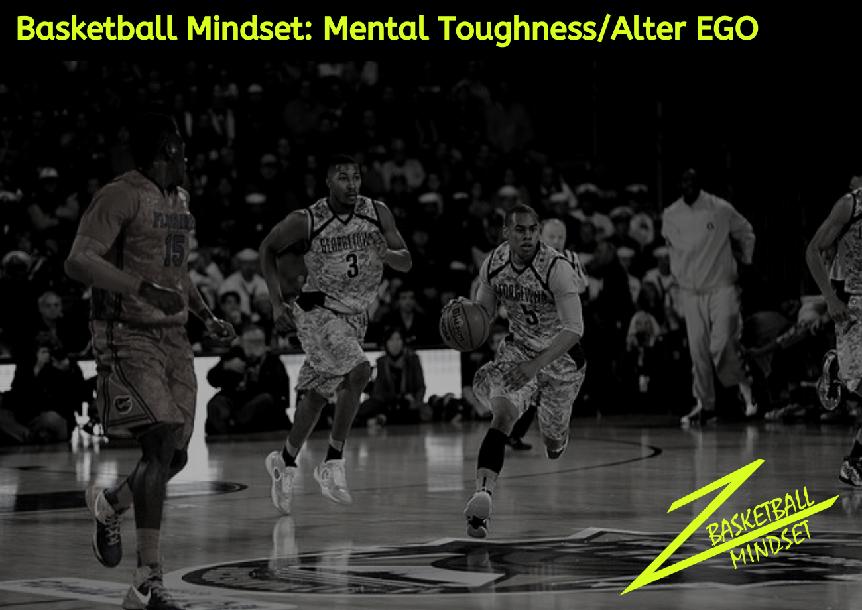To improve mental toughness in basketball, players should focus on developing resilience and maintaining a positive mindset throughout games and practices. Mental toughness is crucial for dealing with pressure and setbacks, allowing players to stay focused and perform at their best.
By practicing visualization techniques, setting realistic goals, and embracing challenges, players can enhance their mental toughness and elevate their overall performance on the court. Developing mental toughness in basketball requires dedication and consistent effort, but the rewards are well worth it.
With a strong mental game, players can not only enhance their own performance but also contribute to the success of their team.
The Importance Of Mental Toughness In Basketball
Mental toughness plays a vital role in the performance of basketball players. It is crucial to understand the impact of mindset in basketball. A strong mental game can significantly influence players’ abilities to handle pressure, overcome setbacks, and maintain focus and motivation. Developing mental toughness is a key aspect for players to achieve their full potential in the sport. It is not just physical skills that determine success on the court, but also the mental resilience to face challenges and push through adversity. By cultivating mental toughness, players can enhance their decision-making skills, adaptability, confidence, and overall performance. To become mentally tough, players should engage in practices such as visualization, setting goals, positive self-talk, and mindfulness exercises. Mental toughness is a valuable asset that can give basketball players a competitive edge and improve their overall game.
The Fundamentals Of Mental Toughness
Mental toughness is a crucial aspect for basketball players to excel on the court. It is the ability to stay focused, motivated, and resilient in challenging situations. Mentally tough players can handle pressure, setbacks, and continue to perform at their best.
Defining mental toughness in basketball involves having a strong mindset, being able to bounce back from failures, and maintaining a positive attitude. The key characteristics of mentally tough players include staying composed under pressure, taking responsibility for their actions, and having a strong work ethic.
Building resilience is an essential part of developing mental toughness. Players should embrace challenges, see failures as learning opportunities, and never give up. Through practice, visualization, and positive self-talk, players can strengthen their mental resilience, enabling them to overcome obstacles and reach their full potential on the basketball court.
Developing A Growth Mindset
Mental toughness is a vital attribute for basketball players looking to excel on the court. Developing a growth mindset is crucial in this pursuit. Embracing challenges and seeking opportunities for growth allows players to push their limits and enhance their skills. Rather than avoiding failure, successful players view it as a valuable learning experience. Each setback becomes an opportunity to analyze and adjust their approach, leading to continuous improvement. By adopting a growth mindset, players can overcome obstacles and reach their full potential. So, remember to embrace challenges, learn from failures, and cultivate a growth mindset for basketball success.
Strategies For Overcoming Adversity
Mental toughness is a crucial aspect of basketball, enabling players to handle adversity and perform at their best. Strategies for overcoming adversity in the game include managing pressure and staying focused under stress, dealing with failure and setbacks effectively, and building confidence and self-belief.
When facing pressure, it’s essential for players to stay focused on the present moment. Ignoring distractions and maintaining a positive mindset can help players perform at their peak. Additionally, developing effective coping mechanisms such as deep breathing and visualization techniques can help manage stress during intense game situations.
Dealing with failure and setbacks is an inevitable part of any sport, including basketball. It’s important for players to view failures as learning opportunities and use them to grow and improve. By analyzing mistakes, setting realistic goals, and maintaining a resilient attitude, players can bounce back stronger.
Building confidence and self-belief is key to mental toughness. Positive self-talk, setting small achievable goals, and visualizing success can help players develop a strong belief in their abilities. Additionally, seeking support from coaches, teammates, and mentors can contribute to the development of a confident mindset.
Visualization And Mental Imagery
Visualizing success is a powerful tool for enhancing mental toughness in basketball. By harnessing the power of visualization, players can mentally prepare for game situations, improve focus, and boost performance. Mental imagery involves creating detailed, vivid mental pictures of desired outcomes, allowing athletes to mentally rehearse their moves and plays. This technique helps players familiarize themselves with different scenarios and envision successful outcomes. Another effective strategy is to create a mental highlight reel, where players imagine their best moments and recall their previous successes. This can reinforce positive thinking, build confidence, and strengthen mental toughness. Incorporating visualization and mental imagery into basketball training can provide players with a valuable edge, enabling them to perform at their best and handle high-pressure situations with poise.
Goal Setting And Motivation
Setting effective goals is crucial for developing mental toughness in basketball players. It provides a clear direction and helps in staying focused. When setting goals, players should make sure they are specific, measurable, achievable, relevant, and time-bound (SMART). By breaking down big goals into smaller milestones, players can create a plan that is easier to follow.
However, simply setting goals is not enough. Staying motivated throughout the journey is equally important. Players can maintain motivation by constantly reminding themselves of their personal reasons for wanting mental toughness. Visualizing success and surrounding oneself with supportive teammates, coaches, and mentors can also help in staying motivated.
Additionally, celebrating milestones along the way can provide a sense of accomplishment and keep players on track. Small rewards and acknowledgments can boost morale and reinforce the importance of mental toughness. By setting effective goals, creating a plan, staying motivated, and celebrating milestones, basketball players can develop their mental toughness and excel on the court.
Mindfulness And Focus
Mental toughness in basketball is crucial for players to excel in the game. One important aspect of developing mental toughness is practicing mindfulness and focus. By incorporating mindfulness techniques, players can improve their concentration and enhance their performance on the court.
Practicing mindfulness allows players to develop a laser-like focus, especially during high-pressure situations. This helps them maintain composure and make effective decisions amidst intense competition. By staying present and in the zone during games, players can minimize distractions and fully utilize their skills and abilities.
With improved concentration and presence of mind, players can react swiftly, anticipate moves, and make accurate plays. Mindfulness and focus also contribute to better communication and coordination with team members, leading to a stronger overall performance.
Building Mental Toughness As A Team
Mental toughness is a crucial aspect for basketball players. It not only helps them perform at their best, but also enables them to endure tough challenges and setbacks. Building mental toughness as a team requires fostering a supportive team culture, effective communication, and strong leadership strategies.
Creating a supportive team culture is essential. This involves promoting a sense of unity, trust, and respect among team members. Encouraging open communication, active listening, and providing constructive feedback can help build a supportive environment where players feel comfortable expressing their thoughts and emotions.
Effective communication and leadership strategies further contribute to mental toughness. Clear and concise communication can help players understand their roles, tactics, and strategies, enhancing their confidence and focus. Strong leadership encourages accountability, motivation, and determination among team members.
Developing a shared vision for success is also important in building mental toughness as a team. Setting clear goals and expectations, visualizing success, and working towards a common purpose can foster a sense of purpose and determination in the team.
Mental Toughness Drills And Exercises
Mental toughness is a crucial aspect of basketball that can greatly impact a player’s performance on the court. Developing mental toughness requires consistent practice and dedication. One effective way to enhance mental toughness is through a variety of drills and exercises that target specific aspects of the mental game.
Visualization exercises are a powerful tool for improving performance. By visualizing successful plays, athletes can strengthen their mental preparation and enhance their focus and confidence. Another effective drill is mental strength training routines. These routines focus on building resilience, managing stress, and maintaining a positive mindset.
Practical drills to develop mental toughness involve challenging players to overcome obstacles, such as high-pressure situations or self-doubt. These drills help players develop mental resilience, perseverance, and the ability to stay calm and focused in difficult circumstances.
By incorporating these exercises and drills into their training regimen, basketball players can enhance their mental toughness and improve their overall performance on the court.

Credit: coachtube.com
The Power Of Mental Toughness In Competition
Mental toughness is a crucial factor for success in basketball. By developing strong mental resilience, players can enhance their performance under pressure and turn games around. In this blog post, we will explore the power of mental toughness in competition, showcasing case studies of mentally tough basketball players who have demonstrated exceptional grit and determination.
Real-life examples highlight how mental toughness can make a significant difference on the court. Players who possess mental resilience are better able to overcome challenges, maintain focus, and persevere through difficult situations. Whether it’s remaining calm in high-pressure moments or bouncing back from setbacks, mental toughness is a game-changer.
By cultivating mental toughness, players can unlock their full potential and elevate their performance to new heights. It is an invaluable asset that can turn the tide of a game and create a competitive advantage. So, for players who aspire to excel in basketball, developing mental toughness should be a top priority.
Frequently Asked Questions For Mental Toughness In Basketball: Tips For Players
How Can I Improve My Mental Toughness In Basketball?
To improve your mental toughness in basketball: 1. Set clear goals and visualize success before each game or practice. 2. Practice positive self-talk and focus on controlling your emotions. 3. Face challenges head-on and learn from mistakes, using them as opportunities to grow.
4. Stay mentally engaged throughout the game by staying present and focused on the task at hand.
How Do You Make A Player Mentally Tough?
To make a player mentally tough, provide consistent and challenging training, build confidence through positive reinforcement, teach resilience in the face of adversity, and foster a growth mindset.
How Do You Lock In Mentally In Basketball?
To lock in mentally in basketball, focus on the game, eliminate distractions, visualize success, and stay positive.
How Do You Play Tougher In Basketball?
To play tougher in basketball, focus on improving your strength, agility, and defensive skills through practice and training.
Q: How Can Mental Toughness Improve Basketball Performance?
A: Developing mental resilience helps players stay focused, handle pressure, and overcome setbacks, leading to heightened performance on the court.
Conclusion
Developing mental toughness is crucial for basketball players looking to take their game to the next level. By implementing the tips mentioned in this blog post, players can strengthen their mindset and enhance their performance on the court. Firstly, focusing on the present moment and maintaining a positive attitude can help players overcome challenges and push through difficult situations.
Secondly, setting realistic goals and having a strong work ethic can contribute to long-term success. Thirdly, developing self-belief and confidence can boost performance and prevent self-doubt from hindering progress. Additionally, managing pressure and staying composed under stressful conditions can significantly impact a player’s ability to perform at their best.
Ultimately, mental toughness is a skill that can be developed and improved over time with consistent practice and dedication. By becoming mentally tough, basketball players can unlock their full potential and achieve success on and off the court. So, start implementing these tips today and watch your mental game soar to new heights.




